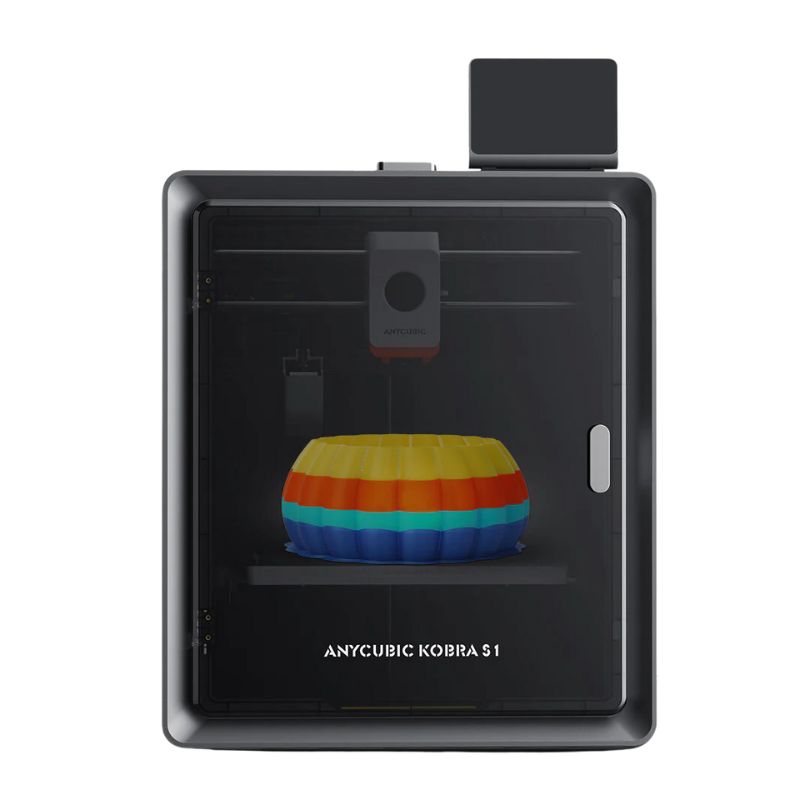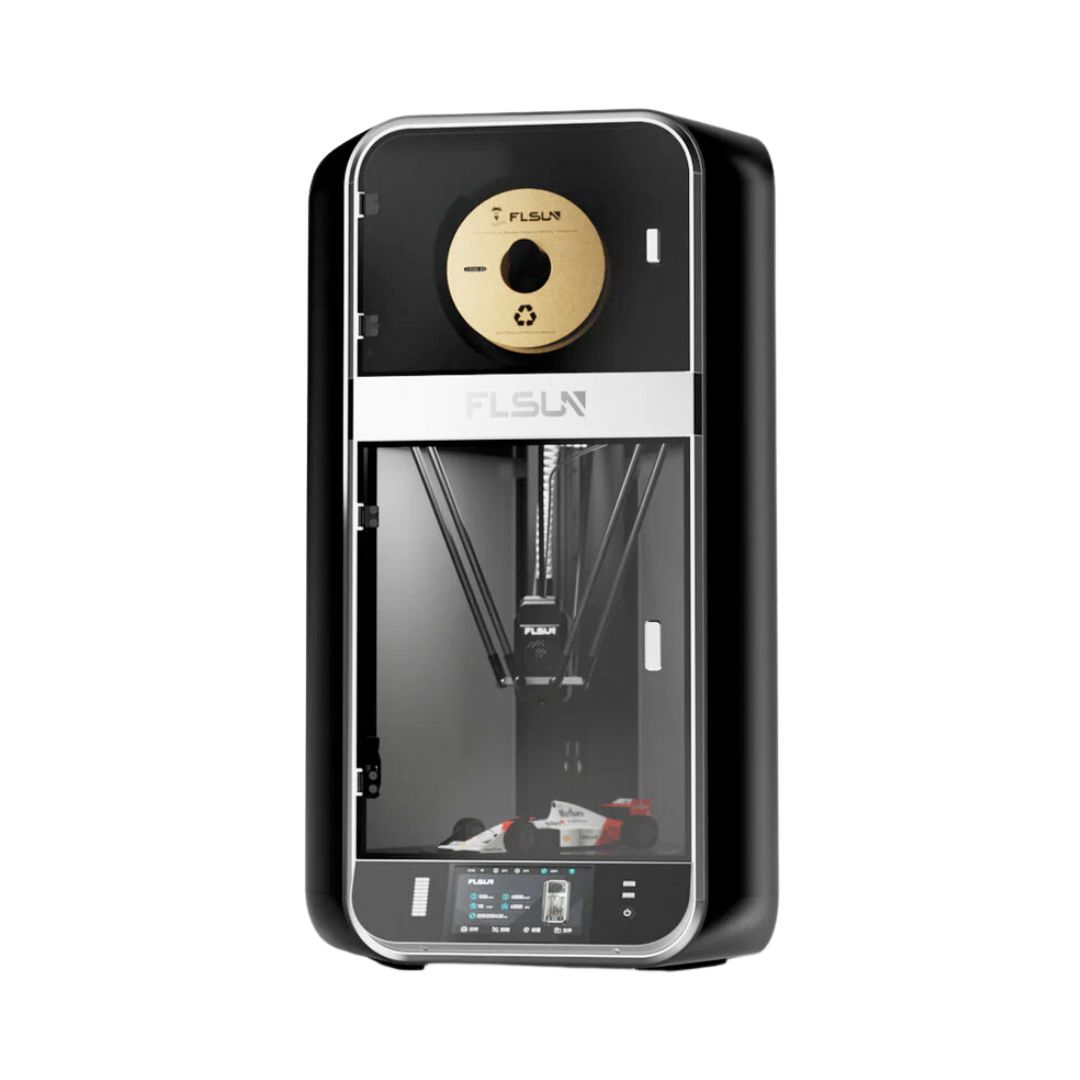Compare Kobra S1 Combo vs S1 PRO
Comparison between the best 3D printers
Choose the best 3D printer at the best price. The cheapest 3D printers are here.
Buy a 3D printer here with 3D Fila.
 |
 |
|
| Model | Kobra S1 Combo[BUY Kobra S1 Combo] |
S1 PRO |
| Printing Material | Filament | Filament |
| Buy Filament for Anycubic Kobra S1 Combo | Buy Filament forFLSUN S1 PRO | |
| Estimated price | $599,00 | $1500,00 |
| Manufacturer | Anycubic | FLSUN |
| Release Year | 2025 | 2024 |
| Print Volume [mm] | 250x250x250 | 320x320x430 |
| Printer Size [mm] | 400x410x490 | 450x450x1200 |
| Weight [kg] | 18 | 41 |
| Power Loss Recovery | YES | YES |
| Enclosed printer | YES | YES |
| Bed Leveling | Automatic | Automatic |
| Filament End Sensor | YES | YES |
| Bed type | Heated | Heated |
| Power supply system | Direct Drive | Direct Drive |
| Standard nozzle | 0,4 | 0,4 |
| Maximum Nozzle Temperature [°C] | 320 | 350 |
| Maximum Bed Temperature [°C] | 120 | 120 |
| Maximum printing speed [mm/s] | 600 | 1200 |
| Filament holder | YES | YES |
| Camera for supervision | YES | YES |
| Recommended filaments | PLA, PETG, TPU[1], ABS, ASA | PLA, PETG, TPU, ABS, ASA, Nylon, PC, PP, HIPS |
| Recommended slicers | Anycubic Slicer Next, Orca Slicer | FLSun Slicer 2.0, Orca Slicer |
| Maximum Resolution [mm] | 0,01 | 0,01 |
| Processor | ||
| Display | Touchscreen 4,3'' | Touchscreen 7'' |
| Power Supply | 500W 110-240V, 50/60HZ | |
| Connectivity | USB, Wifi | Wi-Fi, USB, app FL Sun World |
| Operating systems | Windows, Linux e Macbook | Windows, Mac |
| Date of registration in the system | 2025-02-25 | 2024-12-16 |
| Release date | 2025 | 2024 |
| Extra features | The Anycubic Kobra S1 Combo is a fully enclosed CoreXY 3D printer with speeds up to 600mm/s and 20,000mm/s² acceleration. It features a 320°C hotend, native multicolor printing (4 to 8 colors with ACE Pro), and active filament drying. Equipped with LeviQ 3.0 auto-leveling, camera monitoring, AI failure detection, carbon filtration, and a 4.3 touchscreen, it ensures high-quality, efficient, and reliable 3D printing. | The FLSUN S1 Pro is a high-speed Delta 3D printer, reaching up to 1200 mm/s with 40,000 mm/s² acceleration. It features a build volume of 320 mm (diameter) x 430 mm (height), a 350°C hotend, dual-zone heated bed up to 120°C, a 50°C heated chamber, and an active filament drying holder. It includes a camera for remote monitoring, integrated UPS for power-loss safety, a HEPA filter, and a 7 touchscreen interface. Perfect for large and complex projects. |
| Support for multiple colors and materials (AMS and CFS) | YES | NO |
Notes * |
||
| Cost-benefit | 7 / 10 | 7 / 10 |
| Hardware | 8 / 10 | 5.4 / 10 |
| Tela | . | . |
| Print volume | 3 / 10 | 4 / 10 |
| Performance | 5 / 10 | 9 / 10 |
| [BUY Kobra S1 Combo] |
Conclusion |
| In comparing the Anycubic Kobra S1 Combo and the FLSUN S1 Pro, both printers offer unique advantages tailored to different user needs, yet their notable differences heavily impact their overall value. The Kobra S1 Combo is a budget-friendly option that provides essential features for enthusiasts and casual users. Its enclosed design and automatic bed leveling make it user-friendly while supporting a variety of filaments. The maximum printing speed of 600 mm/s is sufficient for most projects, and the inclusion of advanced features like AI failure detection and active filament drying enhances reliability. However, its smaller print volume may be a limitation for users looking to create larger or more intricate designs. On the other hand, the S1 Pro is positioned as a high-performance machine with an impressive maximum printing speed of 1200 mm/s, making it suitable for complex and large-scale projects. Its larger print volume and capability to handle a wider range of filaments, including advanced materials like Nylon and PC, make it ideal for professional applications and serious hobbyists. Nevertheless, the higher investment required may not align with the budget of casual users. Ultimately, the choice between these two printers depends on individual needs and budget considerations. For those prioritizing speed and volume for larger projects, the FLSUN S1 Pro is superior. Conversely, for those seeking a more cost-effective solution for general-purpose printing, the Anycubic Kobra S1 Combo represents a commendable option. Therefore, aligning expectations with intended use cases is essential for making the best decision between these two capable 3D printers. |

